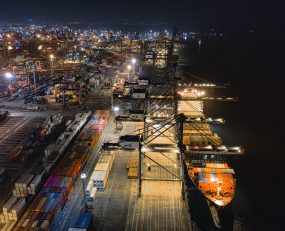
With the EU and UK reaching a Brexit deal, also known as the Trade and Cooperation Agreement, both parties established a zero tariffs or quota on trade between them, where goods meet the relevant rules of origin.
This particular provision has become one of the most contentious and challenging obstacles for trade between the two blocs. Under the terms of the trade deal, goods crossing the border incur no tariffs or duties as long as they originate within the EU or the UK, if they do not, they default and may be subject to World Trade Organization–standardised tariffs. Complications start occurring when components of product come from outside this free-trade area of either being wholly made in the UK or the EU. The deal includes a tariff custom code, which sets out requirements on a product-by-product basis. The deal also does not allow for mutual recognition of product conformity standards, adding another layer of checks and documentation requirements for border officials.
Dairy products, for example, incur a tariff if more than 20% of their weight comes from outside the area; for white chocolate, the limit is 40%. Also, the transformation of external ingredients into a UK or EU food product may or may not make the product tariff-free, depending on how the food is made.
Those rules are causing disruptions and continue to weigh on EU-UK trade, as exports from the UK to EU countries now take 112% longer on average. According to the shipping company Forward2me, the difference in shipping times between December 2020 and January 2021 jumped to 8.55 days from 4.03, as the average for all EU countries, with the highest individual increase coming in at 950%.
The firm singled out Germany, as one of its most popular shipping destinations from the UK, which recorded door-to-door transit times as low as 2.86 days as recently as November but jumped to 10.46 days in January, showing a 186% increase.
These disruptions have pushed some companies to shift their distribution centres, warehousing and transport routes due to difficulties caused by post-Brexit tariffs, customs clearance and immigration policy. According to Susan Boylan, Gartner’s logistics Strategy and Operations Team analyst, the first Brexit-related problem to cause trade disruption for many were indeed the rules of origin for goods.
As Boylan highlighted, the encountered difficulties come back to the complexity of a product. While ready-made products are easily determined, as soon as a product undergoes a transformation to a certain degree, it may or may not qualify for the prime or preferential tariffs within the free trade agreement. This is a particular pain point for food suppliers, as they cannot retain high levels of stock and require a swifter logistics process, making them one of the first and hardest hit from Brexit consequences.
Boylan also highlighted that some organisations have concluded that tracing the classification of their goods is so expensive, that they prefer paying the tariff instead.
With the end of the Brexit transition period, the UK’s immigration policy had also been updated, requiring companies to pay if they are sourcing from the EU. Boylan states this might be especially difficult for agriculture, as those companies now need to be a sponsor for workers on top of the regular pay for their employment.
These issues come on top of the fact that one in five consignments or trailers are being side-lined due to missing or incomplete customs clearance paperwork, creating a capacity crunch during already challenging times.
Two ways companies have been attempting to mitigate the impacts of Brexit is by either avoiding the UK and switching to storage facilities on mainland Europe. Boylan explains that many Irish companies avoided the UK land bridge by turning to a ferry trip to France, Spain and the Netherlands, despite higher costs and longer transport times. Meanwhile UK online retailers are said to be increasing their facilities on the continent, thus avoiding tax, tariffs and port delays, including for their customers.
Source: Transport Intelligence, May 6, 2021
Author: Transport Intelligence
This brief has been taken from a larger paper, ‘The effects of Brexit on European Road Freight’ by Ti Research. This paper is available exclusively to GSCi subscribers. Each week, Ti’s team of senior analysts and industry experts deliver analysis covering the latest logistics and supply chain trends exclusively to users of GSCi.